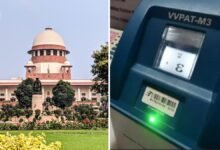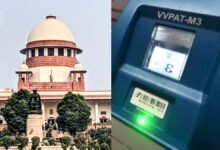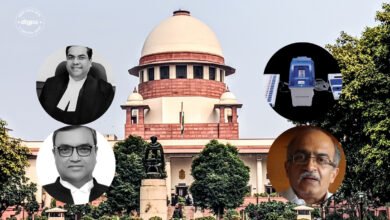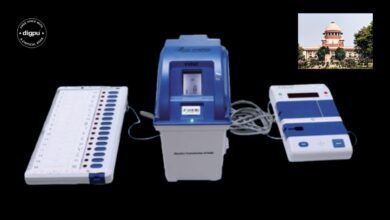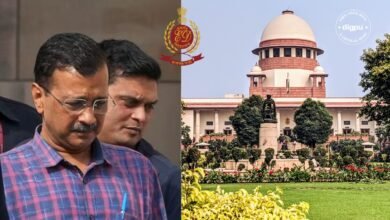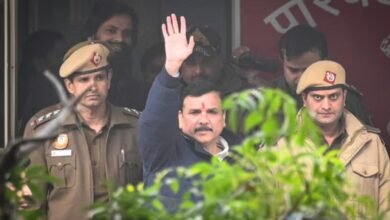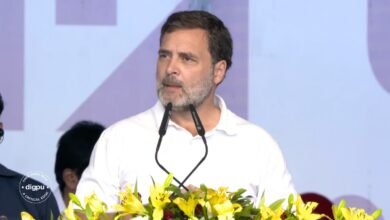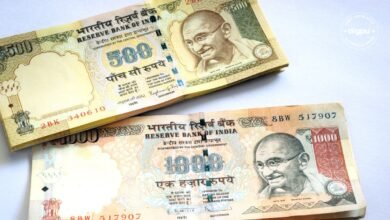Supreme Court Issues Notice to ECI Over Demands for Enhanced VVPAT Verification
Plea Seeks Comprehensive VVPAT Scrutiny Amid Concerns Over Electoral Integrity - Blow to Modi Government Amid Allegations of Rigged Elections.
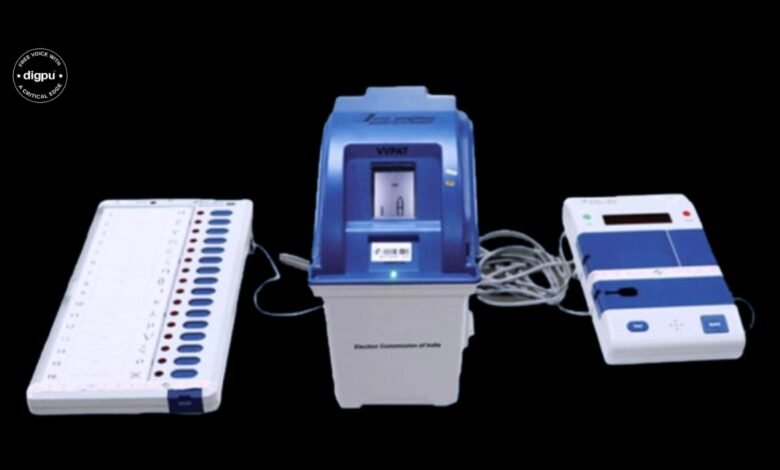
In a significant development, the Supreme Court of India has issued notice to the Election Commission of India (ECI) on a petition seeking comprehensive verification of Voter Verified Paper Audit Trail (VVPAT) paper slips in elections. The petition challenges the current practice of verifying only 5 randomly selected Electronic Voting Machines (EVMs) in each assembly segment of a parliamentary constituency.
A Bench comprising Justices BR Gavai and Sandeep Mehta passed the order, tagging the petition with another plea filed by the Association for Democratic Reforms (ADR) seeking similar reliefs. The petitioners argue that the current guidelines mandating sequential verification of VVPAT slips cause undue delay and do not ensure comprehensive verification of votes.
The petitioner contends that if simultaneous verification is conducted and more officers are deployed for counting in each assembly constituency, complete VVPAT verification can be accomplished in a matter of 5-6 hours. This approach, they argue, would address concerns regarding the discrepancies between EVM and VVPAT vote counts.
The petition highlights the significant expenditure incurred by the government on the purchase of VVPAT machines, amounting to nearly 5000 Crores, while only a fraction of VVPAT slips are currently verified. This, according to the petitioner, undermines the purpose of VVPATs and raises questions about the integrity of the electoral process.
The petitioner seeks four reliefs on VVPAT from the Supreme Court:
- Mandating the ECI to cross-verify the count in EVMs with votes recorded by VVPATs by counting all VVPAT paper slips.
- Quashing Guideline No. 14.7(h) of the Manual on Electronic Voting Machine and VVPAT, which mandates sequential verification of VVPAT slips, leading to undue delays.
- Allowing voters to physically drop VVPAT slips into a ballot box to ensure their ballots are counted as recorded.
- Making the glass of VVPAT machines transparent and extending the duration of the light to allow voters to observe their votes being recorded.
Senior Advocate Gopal Sankarnarayanan and Neha Rathi appeared for the petitioner in the Supreme Court. Earlier, in response to a similar petition filed by the ADR, the Election Commission of India had cited practical difficulties in verifying all VVPATs. A bench led by Justice Sanjiv Khanna had expressed reservations about the demand for 100% VVPAT verification, suggesting it could burden the ECI without significant advantages.
Furthermore, the mention of the Narendra Modi government facing a significant blow in light of allegations of rigged elections adds another layer of complexity to this issue. It underscores the need for impartial scrutiny and accountability in the electoral process to uphold the democratic principles enshrined in our Constitution.
In conclusion, the Supreme Court’s decision to issue notice to the ECI on the plea for enhanced VVPAT verification is a welcome move towards strengthening electoral integrity. It is imperative that all stakeholders work together to address the concerns raised and ensure that the electoral process remains transparent, accountable, and inclusive. The future of Indian democracy depends on it.
